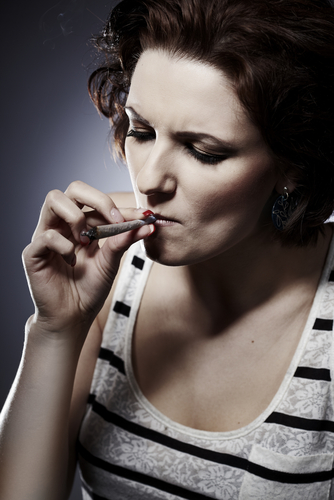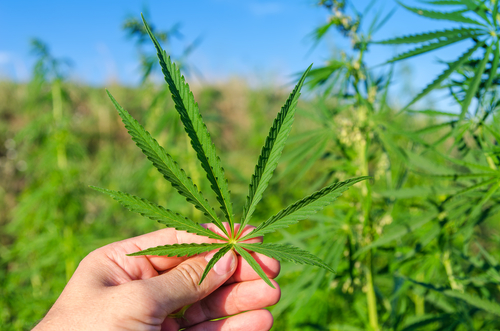
Many substances can travel from your bloodstream into the breast milk. This, for mothers of nursing babies, means that what you eat, drink and consume can affect the quality and nutritional content of your baby’s food. How do medicines, alcohol, caffeine, and recreational drugs measure up and what precautions should you take? Read below to find out.
Although many medications are safe to use when you're breastfeeding, most drugs will get into your milk to some degree and may even affect your milk supply. To be safe, check with your child's doctor before taking any kind of medication, even over-the-counter drugs. To learn more about which medicines are safe while breastfeeding, visit this great site:
https://www.babycenter.com/0_drug-safety-while-breastfeeding_8790.bc
The following is also a great resource to have on hand when looking into the effects of medicines on breastfeeding mothers:
https://www.mayoclinic.org/healthy-lifestyle/infant-and-toddler-health/in-depth/breastfeeding-and-medications/art-20043975
Can breastfeeding moms drink alcohol? The amount of alcohol your baby gets from your milk depends on how much and when you drink. Studies have shown that alcohol levels in breast milk peak about 30 to 90 minutes after your last drink. It takes two to three hours for one drink to clear your system.
Alcohol consumption suppresses lactation and can affect your nursing baby's eating and sleeping.
Limited amounts of alcohol are usually safe while nursing, if you take precautions. Having just one drink at least two to three hours before your baby's next feeding will give your body time to eliminate the alcohol.
Note that alcohol is not stored in breast milk, so the saying “pumping and dumping" serves no purpose.
Drink water and eat before or while you have your drink to help lower the amount of alcohol in your blood and your milk.
Taking in more than 300 mg of caffeine a day (about the amount in a 12-ounce cup of coffee) might affect your baby. When caffeine enters the bloodstream, a small amount of it ends up in breast milk. It is not until three or four months does the baby begin to break down caffeine in their little bodies.
Because the baby’s body cannot easily break down and excrete caffeine, especially in the first few months of life, it may accumulate in their system. Try to limit caffeine intake to less than 300 mg per day, or two to three cups of coffee. Remember other sources of caffeine such as colas, chocolate, teas, some pain relievers, some cold medicines, and other medicines. Chocolate contains theobromine which can act like caffeine in both the mother's and baby's systems. A baby who is being over-stimulated with caffeine will be wide-eyed, active, alert and perhaps fussy.
Chamomile, ginger, Echinacea, often taken as teas, are considered safe for nursing moms in regular doses. Drink any herbal tea with caution, however, especially when you don't know all the ingredients. Peppermint and parsley may reduce your milk supply if taken in large quantities. A cup of peppermint tea probably won't have this effect, but herbalists say numerous cups throughout the day might affect your ability to produce breast milk. (Note that goldenseal, which is often paired with Echinacea, can be toxic in moderate doses.
The amount of nicotine that's present in a smoker's breast milk is more than double the amount in her bloodstream. Cigarette smoke is a complex mixture containing about 4,000 chemical compounds, including more than 60 carcinogens. How many of these compounds are found in a mother's milk, and at what levels, has not been determined.
Studies have shown that babies sleep less when their mothers smoke prior to breastfeeding. In addition, heavy smoking can significantly reduce your milk production. Smoking has also been observed to augment the caffeine effect.
Babies of smokers – breastfed or not – are prone to colic and respiratory infections. Smoking and passive smoke may also increase respiratory and ear infections in babies. If you are unwilling to give up smoking, research does show that it is still better to breastfeed than the alternative, because the benefits of breast milk still outweigh the risks from nicotine. The risk for sudden infant death syndrome (SIDS) becomes greater when a mother smokes or when the baby is around second-hand (or passive) smoke.
If you find it difficult to quit smoking, limit yourself to as few cigarettes as possible, and try not to light up for several hours before a feeding. (Milk nicotine levels peak 30 to 60 minutes after smoking one or two cigarettes, and it takes three hours for nicotine to clear from your body.)
Never smoke around your baby or inside your home or car (or any indoor area where your baby may be). Wash your hands and face and change your shirt after smoking.
Some drugs, such as cocaine and PCP, can make the baby high through the breast milk. Other drugs, such as heroin and marijuana can cause irritability, poor sleeping patterns, tremors, and vomiting. Babies can also become addicted to these drugs. When a breastfeeding mother smokes marijuana, for example, THC (the active component of the drug) appears in her breast milk in quantities that can reach eight times the amount in her bloodstream. In addition, secondhand smoke increases the baby's exposure to the drug. And the results are long-lasting Babies exposed to marijuana in breast milk will excrete THC in their urine for two to three weeks after exposure.
Babycenter.com suggests that there are no conclusive studies on the long-term effects of THC on breastfed babies. Preliminary studies and animal studies suggest that babies exposed to THC show signs of sedation, relaxed muscle tone, and poor sucking. (THC can also decrease the quantity of breast milk.)
In addition, according to one study, exposure to marijuana through breast milk may result in decreased motor development at one year. (Another study found no such link.) There is concern that THC may also alter brain cells during the time when a baby is experiencing significant brain growth.
When using recreational or illegal drugs, many times they can be laced with other harmful and unknown substances. It is best to avoid marijuana and other recreational drugs while nursing because evidence points to harmful long-term effects.
Unlike smoking, if you're unable to stop using recreational or illegal drugs, the American Academy of Pediatrics and the March of Dimes say that you should not breastfeed.
